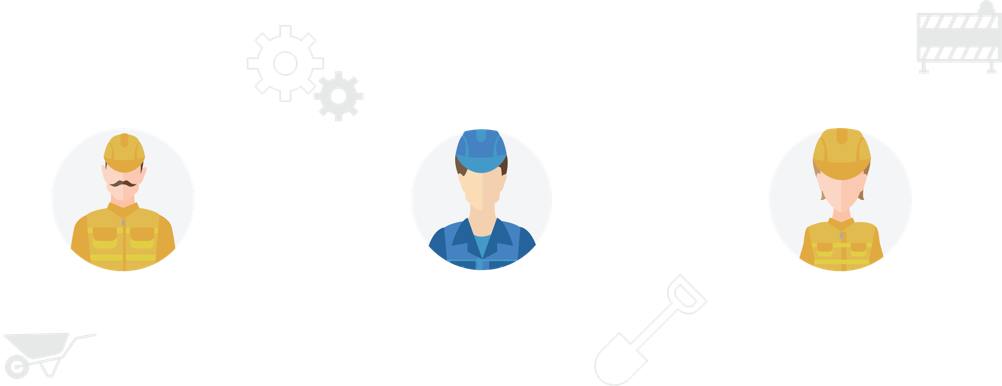
An Auto Body & Collision Damage Repairer repairs automobiles, including frame and structural components, mechanical components, interior components, electrical components, plastic and composite panels and sheet metal panels.
Job Related Skills, Interests and Values
- Reviewing written damage reports and estimates of repair costs
- Planning the work to be performed
- Repairing and replacing front end components, body components, doors and frame and underbody components
- Operating soldering equipment or using plastic filler to fill holes, dents and seams
- Hammering out dents, buckles and other defects using blocks and hammers
- Straightening bent frames using frame and underbody pulling and anchoring equipment
- Applying primers and repainting surfaces using brush or spray guns
- Inspecting repaired vehicles and test driving them for proper handling
- Communicating with customers, co-workers and supervisors
What Preparation and Training Do You Need?
- Completion of a secondary school diploma or equivalent
- Completion of 7,200 hours of on-the-job training
- Completion of 8-week in-class technical training sessions
- Exam to obtain Certificate of Qualification
What's Your Future as a Auto Body & Collision Damage Repairer (310B)?
- Indoor work with loud noise exposure
- Full-time work, with some weekend work
- Small percent of people in this trade are self-employed
Wage Rate
Apprentice wage increases with skill and experience. Fully qualified workers earn an average of $25.00-$37.50 per hour.
Self-Rating
Auto Body & Collision Damage Repairer (310B)
| Ask Yourself: | Yes | No |
|---|---|---|
| Do you have a valid and clean driver’s license? | ||
| Do you have good communication skills? Are you a problem solver? | ||
| Are you able to read blueprints and measurements accurately? Have basic math skills. An organized person? | ||
| Are you able to follow Health & Safety guidelines? | ||
| Are you able to lift more than 50lbs? Are you able to stand or sit for long periods of time? | ||
| Are you detail-oriented and get satisfaction from completing a task well? Are you a creative person? | ||
| Are you reliable, a self-starter and able to work with minimal supervision? Can you start and finish work on time? |
If you checked YES to the majority of these questions, a career as an Auto Body & Collision Damage Repairer (310B) may be for you!
You might want to look at these similar trades as well;
- Heavy Equipment Mechanic
- Auto Body Repairer
- Automotive Service Technician
Drywall, Acoustic and Lathing Applicators erect exterior structural steel studs, sheeting, and shaft wall systems; install and finish lath and drywall, partition walls and furring, ceiling systems, and access flooring types; and apply thermal and sound insulation.
Alignment & Brakes Technicians inspect, diagnose, and repair electrical and electronic controls, suspension systems and frames, and braking and steering systems, as well as tires, wheels, rims, and hubs. They also perform alignment on motor vehicles and may, at some point in their career, choose to specialize in alignment and brake systems.
Automotive Glass Technicians repair, remove, and install glass and windshields in motorized and automotive vehicles.
Heavy-Duty Equipment Technicians repair, overhaul, and maintain mobile heavy-duty equipment used in construction, forestry, mining, material handling, landscaping, land clearing, and farming.
Automotive Service Technicians, sometimes referred to as Motor Vehicle Mechanics, inspect, diagnose, repair, and service mechanical, electrical, and electronic systems and components for cars, buses, and trucks. They also perform major repair and replacement of mechanical units on newly assembled motor vehicles. Technicians may choose to specialize in engine and fuel systems, brakes, drive lines, suspension, electrical and electronic systems, or diagnostic services.
Agricultural Equipment Technicians repair, overhaul, and maintain a variety of agricultural equipment including tractors, tillage, seeding, and harvesting equipment.
Transmission Technicians inspect, diagnose, repair, and service manual, automatic, electrical, and electronic controls for cars, buses, and trucks. They may also perform major repair and replacement of mechanical units on newly assembled motor vehicles.